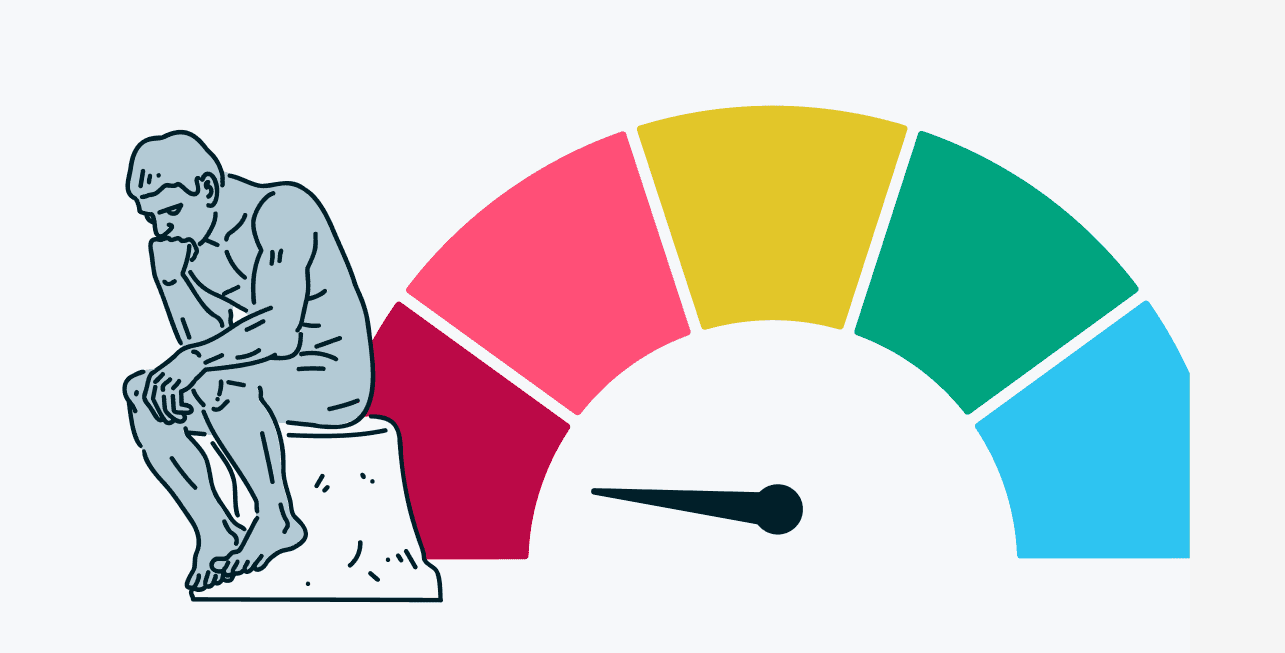Feb 15, 2018
Merging Bank Accounts as a Couple: Should You Do It?
It’s a big decision. Here are the pros and cons.

In this article:
You’re in love, ready to settle down with your partner and join your lives…but what about your money?
As you move from singledom to couplehood, it’s a natural progression to merge your bank accounts.
It’s an option that’s becoming increasingly popular, with half of millennials sharing their accounts before marriage—but it’s not a decision to take lightly.
Your bank account reflects your cash flow and the money you’ve accumulated over your lifetime and your financial goals, so it’s important to pay careful attention to how you manage it.
By pooling your money, you’re showing you trust your partner, and are ready to think of your income and savings as a combined resource, rather than an individual one.
We asked Los Angeles-based financial advisor Michele Steinberg, who’s spent 16 years in the industry advising couples on their financial options, to break down the pros and cons.
Pros
Efficiency
Steinberg recommends having only one bank account per couple, and believes the ideal time to start sharing an account is when the couple is getting married or making a life commitment.
Nine times out of 10, there’s one person in the couple way more interested in finances. When you merge bank accounts, that makes the job of tracking income and spending less complicated for that person, Steinberg says.
Because there’s someone diligently going over the books, Steinberg says that bills could get paid more frequently when couples have joint accounts. You’re also saving time by only dealing with one bank and one monthly statement.
Enforced communication
When you have separate accounts, it’s easy to hide an extravagant or even embarrassing splurge (midnight online shopping, perhaps?). But when you share one account, the other person is guaranteed to spot the $300 headphones you thought you could hide.
These are issues you have to discuss openly, which could help bring you closer together.
“To avoid resentment, there needs to be a lot of communication about your budget,” Steinberg explains.
Setting a budget can be a joint process, even if one person is primarily in charge of paying bills. After the budget is set, you should meet at least every six months to go over your finances, ideally before paying taxes and before holiday spending.
Steinberg’s theory is actually supported by other personal finance experts. Dave Ramsey, the money management and talk show host, actually condemns separate checking accounts in marriage as a “danger sign.” He told a listener that it “forces you to cooperate.” Ramsey warned that if one person is pushing to keep your accounts separate, that shows they’re either preparing to leave or not truly committed to your partnership.
To retain some privacy and financial autonomy, you can begin each month by each withdrawing a small, set amount in cash. That money is yours to spend as you wish, no questions asked. This way both parties know how much was withdrawn, but don’t have to know the details of how it’s spent.
Joint Goals Are Easier to Reach
When you’ve got just one person balancing the books, you can focus on larger joint goals, such as buying property or adding to your retirement fund. For instance, if your checking account has a minimum balance, pooling your resources makes it more likely that you’ll meet that minimum.
You can mutually agree on what goals you have for your money, and appoint one person to guide your combined savings toward those goals.
Cons
Risk
After you’ve combined accounts, there’s always the risk that one partner will be irresponsible with his or her money. Because of this, Steinberg cautions that you should know what your other half’s spending and savings habits are before merging accounts.
That said, even though the more financially-oriented person may be overseeing the account, that doesn’t mean the other person should abdicate all responsibility. Communication is paramount—and it may not always be pretty. If you overdraw the account or make another type of mistake, you have to fess up.
Other financial experts have a more negative view, warning of pitfalls of joint checking accounts, such as risk of debt collection if one partner owes money. This is another reason why regular communication and openly sharing your financial issues with your significant other is so essential, especially if you share an account. If one of you is having a problem with money, you can tackle it together.
You May Pay More
The point of joining bank accounts isn’t just simplicity; it’s also to help you further your mutual life goals. If one of you has debt or a bad credit score, the other can use some of their income to assist you in improving the situation.
This will help you both down the road to buy property or make other investments. This saves money by not having to pay interest, but the downside is, the more financially stable partner may have to fork over more to help get the other one on the right track.
If you’re living in one of the nine community property states, getting married means you legally take on your partner’s debt, so it’s in both of your best interest to pay it off.
Other options
Another course of action Steinberg says some couples follow is retaining separate bank accounts, but creating a joint spending account to pay mutual expenses. In that case, she recommends that rather than split everything down the middle, the more equitable way to divvy up costs is based on a percentage of each person’s income.
This way, if one person makes $100,000 a year and the other makes $40,000, the person with the lower salary would cover an agreed upon percentage of bills such as 30%, while the other pays 70%. You can choose percentages that you agree are a fair reflection of the disparity in your incomes. Should those incomes change, you can later readjust the percentages to reflect those changes.

Investing made easy.
Start today with any dollar amount.
However, Steinberg cautions that when you have separate accounts, bills may get lost in the shuffle, since there’s more paperwork to keep track of. Rather than one person controlling the bills, you’ll have to divvy up the responsibility for them.
Things may slip through the cracks that could come back to haunt you. That $40 medical bill you thought you paid but didn’t could wind up in collections. If you do have separate accounts, your roles need to be clearly delineated regarding who’s in charge of which joint expenses. You might want to keep a joint spreadsheet listing when each bill is due and marking off the date it’s paid and person who paid it
If you decide later to separate from your partner, or decide a joint account isn’t for you, it’s generally not too complicated to go back to individual accounts.
Things to talk about
You should continue to retain your own credit card, since that’s tied to your individual credit score. Closing a credit card in order to apply for a new one could negatively affect your credit score. Plus the risks if one person mismanages the joint card could have long-lasting impact.
You should also continue to invest in your personal retirement account, because that’s tied to your Social Security number and cannot be combined until it’s taken out.
If you feel it’s still too early to merge accounts, you can always do so down the road.
While Steinberg recommends you start early, some couples wait a few years and ease into the process. That’s acceptable, as long as you increase your communication around finances.
A 2018 poll found that 23% of respondents have kept bank accounts hidden from their partners. While you may not discuss every major purchase early on, you don’t want to plan a life with someone who’s keeping major money secrets from you.
If you’re ready to get serious about your relationship, merging bank accounts can actually help by forcing you to get truly honest with each other about finances.
It will likely also make you a little more responsible with your money because you know you’ll be held accountable by your partner.
Related articles

borrowing
Oct 14, 2024
How To Use Personal Loans

borrowing
Oct 07, 2024
Cash Advances vs. Personal Loans: Which is Better?

borrowing
Oct 07, 2024
How To Use Cash Advances

borrowing
Oct 07, 2024
How To Pay Off a Cash Advance Quickly

borrowing
Oct 07, 2024
What To Know Before Taking a Cash Advance

borrowing
Oct 07, 2024
How to Avoid Cash Advance Fees
By using this website you agree to our Terms of Use and Privacy Policy. To begin investing on Stash, you must be approved from an account verification perspective and open a brokerage account.
